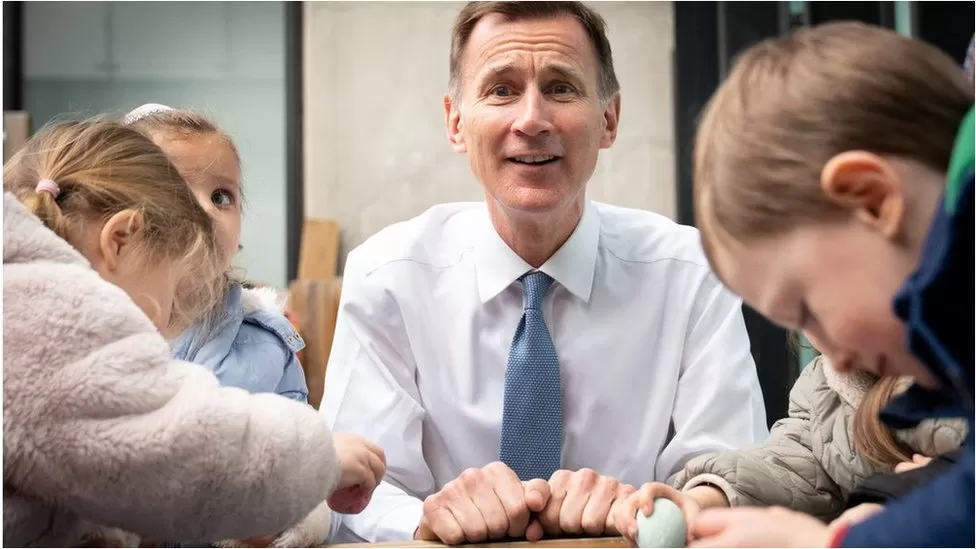Chancellor Jeremy Hunt has been giving interviews to the media, following Wednesday’s Budget. We’ve looked at some of his claims.
Delivering a 30% rise in childcare payments
Mr. Hunt was quizzed on BBC Breakfast about payments for nurseries providing government-funded childcare. Presenter Nina Warhurst said nurseries were complaining that the increase to £5.50 an hour to cover free childcare for three- and four-year-olds was not enough.

The chancellor replied: “What the sector asked for before the Budget was a 30% rise and that’s what we’ve delivered.” The 30% that he was referring to was the increase in funding for two-year-olds, which is going up from £6 to £8 an hour. But what he was asked about was the funding for three- and four-year-olds, which is going up from £5.29 to £5.50 an hour – that’s about 4%, not 30%.
The Budget and immigration
The chancellor was asked on Radio 4’s Today programme about the Budget’s impact on migration to the UK. He said: “There are no measures in the Budget that… increase immigration.” But one of the measures it includes is adding five types of construction workers – including bricklayers, roofers, carpenters and plasterers – to the shortage occupation list. This list is for jobs for which it is easier to get a skilled worker visa to come to the UK. Presumably the government is hoping to increase the number of construction workers coming to the UK. Budget documents say it is part of measures “to help ease immediate labour supply pressures”.
Surgeons Reducing Hours Over Tax
The chancellor was asked why he had increased the amount people are allowed to put into their pensions tax-free. Mr Hunt explained to BBC Breakfast: “The Royal College of Surgeons say that 69% of their members have reduced their hours because of the way the pension system works.” What the Royal College of Surgeons actually said was that 69% of consultant surgeons – rather than all surgeons – had cut their hours as a result of the pensions “tax-trap”. It put that figure in a press release after commissioning a survey in 2019.
The figure for all its members was 57%. That’s still a large number of surgeons to be reducing their hours. But there is another problem, which is that the research is what is known as a self-selecting survey. The questions were sent out to the almost 30,000 members of the Royal College of Surgeons in England and 1,890 of them responded. There is a danger that the only people who replied were those particularly concerned about the tax policy the survey was asking about. Those less worried about the tax treatment of their pension may have been less likely to respond, which means the results may not have been representative of the membership.
![]()





